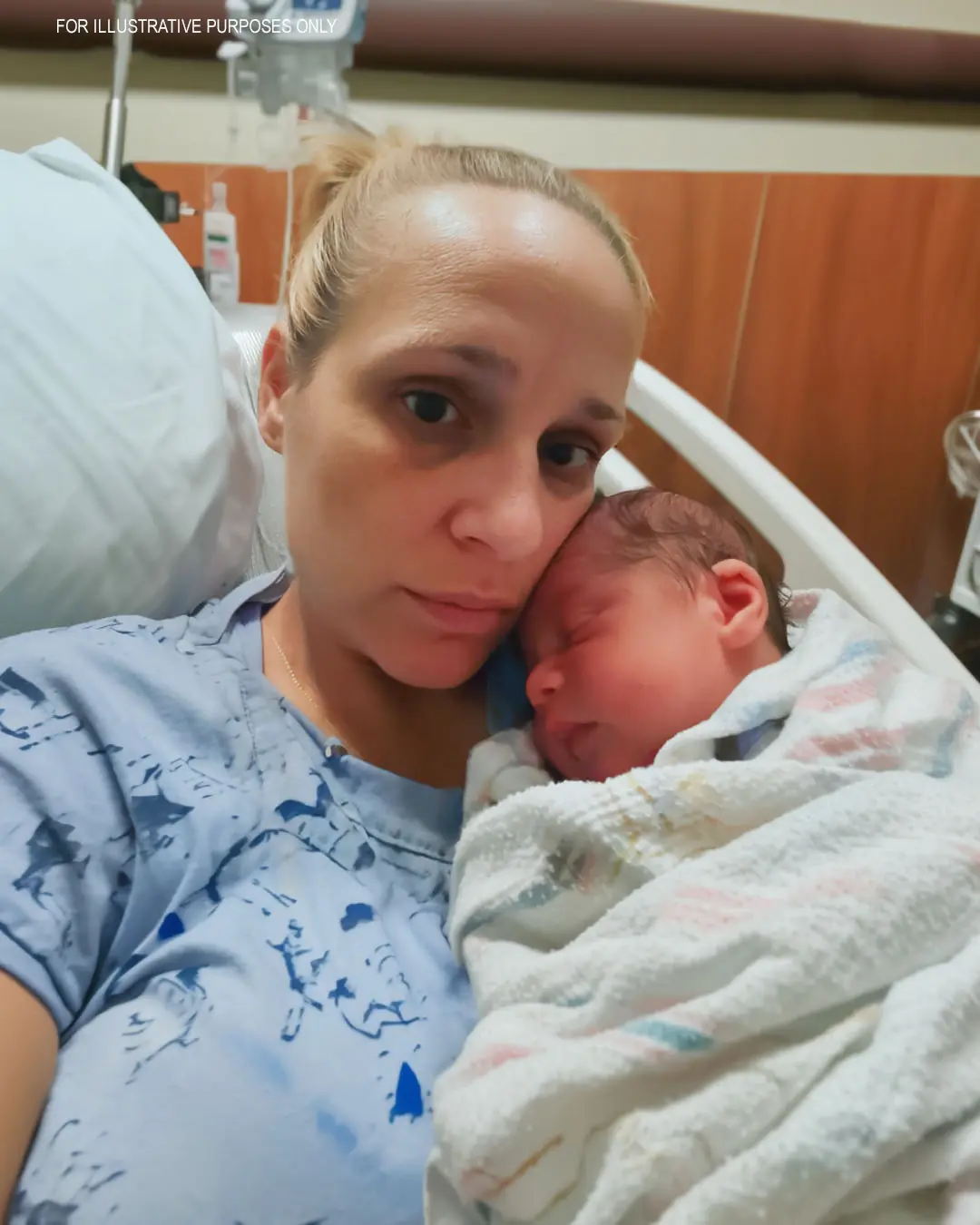After 19 exhausting hours of labor, I expected support, but what I got was a $9,000 hospital bill and a husband who coldly remarked, "Your bill, your problem." Shocked and hurt, I quietly made a plan to respond in a way that would make him reconsider ever

My name is Margaret, and after giving birth to my daughter, Lila, I never imagined that my marriage would be tested so soon.
Lila was born on a stormy Wednesday night after 19 long hours of labor. You know that kind of exhaustion where it feels like your whole body has been wrung out? That was me, holding my perfect little girl who fought her way into the world, as the thunder cracked outside our hospital window.
Two weeks later, I sat in our kitchen, still in my nursing tank top and yoga pants, when the mail arrived.
It was the usual—bills, ads, nothing exciting. But then, I saw a thick envelope addressed to me in that official, impersonal font that screamed "medical billing department."
My hands trembled as I opened it.
$9,347. That’s what it cost to bring Lila into the world.
I walked into the living room holding that bill like a heavy weight, expecting my husband to be there to help share the load.
You know how it is when you’re married—facing big challenges together makes them feel smaller.
"John," I said, "the bill from the hospital came, and it’s... well, we might need to decide who’s going to sell a kidney to cover this."
I extended the bill to him, but he didn’t take it. He just glanced up from his phone, barely acknowledging the number.
At first, his nonchalant reaction seemed reassuring, but then he said something that left me speechless.
"Your bill, your problem," he said, turning back to his phone. "It’s in your name."
Wait. What?
I laughed, thinking he was joking. But then I realized he wasn’t.
This was John—the man who had held my hand during labor, who had cried when Lila was born, who whispered “We did it” when the doctor placed her in my arms.
But here he was, dismissing it all.
I looked at him, still hoping he was just distracted. “But it’s OUR daughter. It’s not just my bill.”
John sighed, put down his phone, and looked at me with an air of finality. “I buy the diapers, the formula, the crib, the stroller, her car seat, and everything else. I’m not paying for this too.”
In that moment, something in me snapped—not in anger, but in clarity. I suddenly realized what was really happening. John had always been obsessed with control, down to how he folded his clothes or cooked dinner. This was just another example of that.
So I tried reasoning with him.
I reminded him about our shared expenses—our shared home, the bills we split 50/50. I reminded him that Lila wasn’t just my responsibility; she was ours.
“We split the mortgage, the groceries, the car payments, but somehow the cost of bringing your daughter into the world is just mine?”
“I’m paying for everything else!” John shot back. “Just be an adult and handle your bill.”
And there it was—the underlying issue: money. John had always made more than I did, but we split everything equally—until I went on maternity leave, and suddenly, every dollar he spent was something I should be grateful for.
The baby items he mentioned—crib, stroller, clothes—cost around $3,500. I had been doing everything I could to manage it all, and now he was acting like I should be thankful.
But what really hurt was how quickly John had turned the most significant experience of my life into a financial transaction. Like I had chosen to go to the hospital for elective surgery.
I stared at the bill in my hand, feeling the weight of it, but also the weight of everything I had already given up for our family.
Fine. If John wanted to pretend Lila’s birth was a solo performance, I would show him what “solo” really felt like.
The next day, I set up a payment plan for the bill. $156 a month for the next five years.
I sent him a message about it, giving him one last chance to do the right thing.
He doubled down. “Your bill. Your problem. They served YOU.”
That’s when I started my plan.
I began withdrawing from all the little “wifely duties” I’d been doing without thinking. No more packing his lunch just to be sweet. I stopped doing his laundry and ordering his monthly protein powder.
When he opened his underwear drawer and found it empty, I simply said, “Didn’t want to overstep by doing your personal laundry.”
The confusion on his face was almost comical.
He started missing appointments—first the dentist, then a dinner with his boss, and even a daycare visit we had scheduled. Every time he asked why I didn’t remind him, I sweetly replied, “I’m just staying in my lane, minding my business. Maybe you should keep your own schedule.”
He called me petty and accused me of playing games.
I leaned in, speaking calmly. “I’m just following your logic, John. If it doesn’t involve you, it’s not your problem, right? So, your appointments aren’t my problem either.”
And I walked away.
Then came Sunday dinner, my grand finale. I cooked my grandmother’s meatloaf, made mac and cheese, and baked a chocolate cake. All four of Lila’s grandparents were coming to dote on her, and I wanted it to be perfect.
As the evening went on, everyone shared stories and enjoyed the meal, until I dropped the bomb.
“You should’ve seen the bill I got from the hospital,” I said, cutting the cake. “Since John doesn’t think it’s his problem, I’ll be paying installments until Lila is five.”
Silence.
Then my mother-in-law set down her fork and looked at John, her voice low with disbelief.
“You really told her that?” she asked.
John tried to laugh it off. “It’s not like that. She’s just being dramatic—”
But I had the receipts. I pulled out my phone and read his exact words from the angry text exchange we had when I set up the payment plan: “Your bill. Your problem. They served YOU.”
My father, a man of few words, looked John squarely in the eye. “Son, you’ve got some growing up to do.”
The rest of the evening was awkward, to say the least.
Later that night, John sat on the edge of our bed, realizing the weight of his words. He fumbled for an apology, claiming he was stressed about money and work, and had assumed I would “handle it better.”
I didn’t flinch. “I have my own stress, John—like waking up four times a night with cracked nipples and still being treated like a freeloader. Want sympathy? Go ask your clean underwear.”
“There are no ‘buts,’ John,” I cut him off. “We’re either partners or we’re not. If you’re not paying your share of the bill, move out. We’ll settle the costs in divorce court.”
The next day, he paid half the bill—$4,673.50—without a word.
We’re now in therapy, working on what partnership really means when it counts.
I made it clear to both John and our therapist: Lila will never grow up believing that sacrifice deserves silence, or that love means carrying the load alone.







































